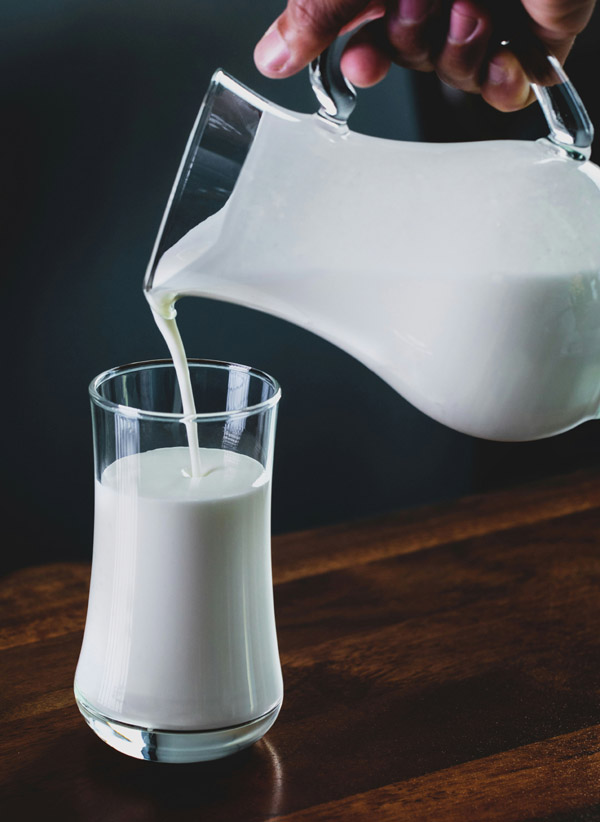Health Benefits of Drinking Raw Milk
Introduction
Raw milk, in its pure, unprocessed state, has long been celebrated for its health benefits by traditional nutrition advocates like Dr. Weston A. Price and Sally Fallon, who emphasize its role in human vitality and ancestral health.
Nutritional Profile and Digestive Support
Raw milk is a nutrient-dense food, providing a complete package of fat-soluble vitamins (A, D, and K2), enzymes, minerals such as calcium and magnesium, and high-quality protein. Unlike pasteurized milk, raw milk retains its natural enzymes, such as lactase, which aids in the digestion of lactose. This makes it potentially more tolerable for individuals with lactose sensitivity.
Dr. Weston A. Price, a pioneering dentist and nutritionist, observed during his global studies that indigenous cultures consuming raw dairy had exceptional dental health, robust physiques, and immunity to chronic diseases common in industrialized societies. Price identified raw dairy as a "sacred food," essential for passing on vitality and resilience to future generations. The naturally occurring probiotics in raw milk, including Lactobacillus and Bifidobacterium species, support gut health, which in turn influences immune function, mental clarity, and inflammation control.

Immune System and Allergy Reduction
The raw, unaltered state of milk also contains immunoglobulins, lactoferrin, and beneficial fatty acids, which can enhance immune function. Sally Fallon, co-author of Nourishing Traditions and leader of the Weston A. Price Foundation, highlights raw milk's role in mitigating allergies and asthma. Studies have shown that children consuming raw milk have lower rates of allergies and respiratory conditions, a phenomenon attributed to the milk’s active immune-supporting compounds.
Whole-Body Benefits
Raw milk also supplies conjugated linoleic acid (CLA), a fat linked to reduced inflammation and improved cardiovascular health. The presence of omega-3 fatty acids further balances the body's inflammatory response and supports cognitive health. According to Sally Fallon, consuming raw milk as part of a nutrient-rich, traditional diet can promote better skin, hormonal balance, and overall vitality. Its live enzymes and bioavailable nutrients make it a cornerstone of a wholesome, ancestral way of eating.
Sustainable Farming and Community Health
The advocates of raw milk, including Fallon and Price’s followers, also point to its connection to regenerative agriculture and small-scale farming. Raw milk production emphasizes healthy soil, pasture-raised animals, and ethical farming practices, benefiting not only individual health but also the planet. This ties into the idea that food sourced from vibrant ecosystems contributes to human well-being at the deepest levels.
A Nutritional Foundation
Raw milk’s synergy of living nutrients and bioactive compounds supports holistic health in ways unmatched by its processed counterpart. For those seeking vitality, it represents an ancient and enduring nutritional cornerstone that aligns with Price's timeless wisdom and Fallon's modern advocacy for ancestral diets.
References
- Price, Weston A. Nutrition and Physical Degeneration. New York: Oxford University Press, 1939.
- Fallon, Sally. Nourishing Traditions: The Cookbook that Challenges Politically Correct Nutrition and the Diet Dictocrats. Washington, D.C.: NewTrends Publishing, 1999.
- Loss, G., et al. "The Protective Effect of Farm Milk Consumption on Childhood Asthma and Atopy: The GABRIELA Study." Journal of Allergy and Clinical Immunology, 2011.
Raw Milk Products: Resource Guide
▶ Articles from The American Journal of Clinical Nutrition (AJCN)
Protective role of probiotics and prebiotics in colon cancer,
by Ingrid Wollowski, Gerhard Rechkemmer and Beatrice L. Pool-Zobel. From
the Institute for Nutritional Physiology, Federal Research Centre for
Nutrition, Karlsruhe, Germany, and the Department of Molecular
Toxicology and Pharmacogenetics, Institute for Nutrition and
Environment, Friedrich-Schiller-University Jena, Germany.
Protection from gastrointestinal diseases with the use of probiotics, by Philippe R. Marteau, Michael de Vrese, Christophe J. Cellier and
Jorgen Schrezenmeir From the Gastroenterology Department, Hopital
Europeen Georges Pompidou, Assistance Publique des Hopitaux de Paris
and Paris V University, Paris, and the Institute of Physiology and
Biochemistry of Nutrition, Federal Dairy Research Center, Kiel,
Germany.
Saturated fats: what dietary intake?,
by J Bruce German and Cora J. Dillard From the Department of Food
Science and Technology, University of California, Davis (JBG and CJD),
and the Nestle Research Center, Lausanne, Switzerland (JBG).
Membrane
peroxidation by lipopolysaccharide and iron-ascorbate adversely affects
Caco-2 cell function: beneficial role of butyric acid, by Frederic
Courtois, Ernest G. Seidman, Edgard Delvin, Claude Asselin, Sandra
Bernotti, Marielle Ledoux and Emile Levy From the Division of
Gastroenterology, Hepatology, and Nutrition, Centre de Recherche,
Sainte Justine Hospital, and the Departments of Nutrition (FC, SB, MLM,
and EL), Pediatrics (EGS), and Biochemistry (ED), Universite de
Montreal, Montreal, Canada, and the Department of Anatomy and Cell
Biology, Universite de Sherbrooke, Sherbrooke, Canada (CA).
Colostrum and milk-derived peptide growth factors for the treatment of gastrointestinal disorders,
by Raymond J. Playford, Christopher E. Macdonald and Wendy S. Johnson From
the Department of Gastroenterology, Imperial College School of
Medicine, Hammersmith Hospital, London; Leicester General Hospital,
Leicester, United Kingdom; and SHS International Ltd, Liverpool, United
Kingdom. 6. Vitamin D status in children, adolescents, and young adults
with Crohn disease by Timothy A. Sentongo, Edisio J. Semaeo, Nicolas
Stettler, David A. Piccoli, Virginia A. Stallings and Babette S. Zemel
From the Division of Gastroenterology, Hepatology, and Nutrition,
Children's Memorial Hospital, Northwestern University, Chicago (TAS),
and the Division of Gastroenterology and Nutrition, The Children's
Hospital of Philadelphia, University of Pennsylvania, Philadelphia
(TAS, EJS, NS, DAP, VAS, and BSZ).
▶ Informative Books on Raw Milk Products
▶ Important Raw Milk Resources
DISCLAIMER: This material is presented for informational purposes only and is not a substitute for medical advice, diagnosis, or prescribing from a licensed healthcare professional. We make no claim or guarantee for cure or relief of any specific symptom, medical condition, or disease when using any of the products or protocols referenced here. Consult with a licensed healthcare professional before altering or discontinuing any current medications, treatment, or care, or starting any diet, exercise, cleansing, or supplementation program, or if you have or suspect you might have a health condition that requires medical attention.
By Kristina Amelong, CCT, CNC
I-ACT-Certified Colon Hydrotherapist
Certified Nutritional Consultant